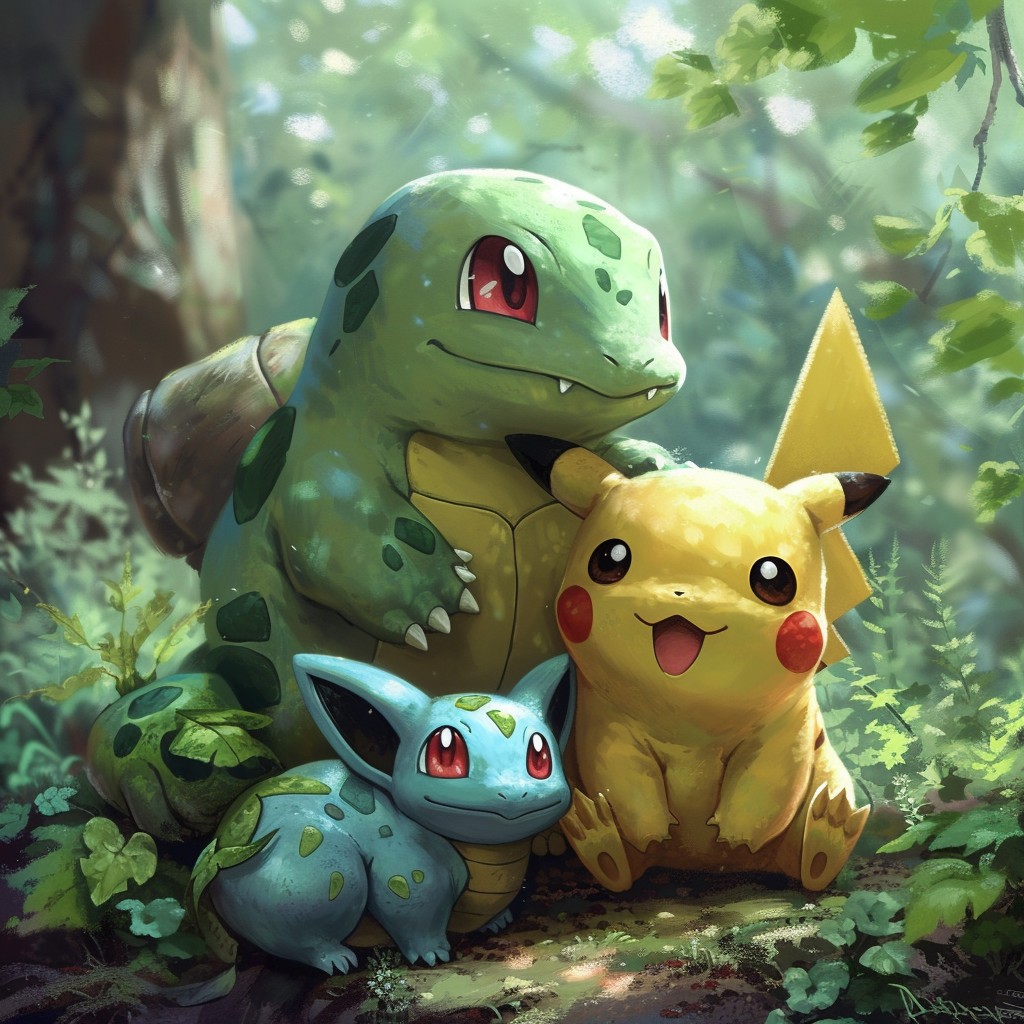Palworld and Pokémon, two beloved franchises in the gaming world, have been under the spotlight for their striking similarities and notable differences since Palworld’s early access release. Let’s dive into the world of pocket monsters and pixelated pals, and explore the Palworld and Pokémon debate.
Similarities between Palworld and Pokémon
Creature designs
Palworld’s creature designs have drawn considerable attention due to their uncanny resemblance to Pokémon. Fans have even created challenges to distinguish between the two. Additionally, both games feature unique variations, with Palworld’s Lucky Pals mirroring Pokémon’s Shiny Pokémon. Moreover, Palworld introduces elemental “Elements” for Pals, akin to Pokémon Types.
Pal Spheres vs. Poké Balls
The catching mechanism in both games is notably similar. Palworld’s Pal Spheres function similarly to Pokémon’s Poké Balls. Players weaken creatures before attempting to capture them with the appropriate Ball/Sphere, with success chances increasing as the creature’s health decreases. Once captured, creatures are stored safely until released by the player.
Battling
The battling system of Palword highly resembles the Pokémon game system. Players call their Pals from their Pal Spheres to engage in battles. They can then command their Pals to use attacks or special moves to defeat opponents, mirroring Pokémon battles.
Antagonistic groups
Both franchises feature evil groups that players must confront, though they differ in themes and objectives. Palworld has five “Factions,” reminiscent of Pokémon Gyms, each with a leader that players must defeat to conquer the faction.
Breeding
Players can breed and hatch offspring from eggs in both games. The breeding process varies, but Palworld introduces the concept of finding wild eggs and incubating them. Leveling up Pals in Palworld is akin to leveling Pokémon, making higher-level creatures stronger and more capable.
Creatures collection
Both games emphasize creature collection. Players can store their captured creatures safely in storage systems, such as Pal Box in Palworld and PC in Pokémon, without affecting the creatures’ well-being.
Differences Between Palworld and Pokémon
Genre
Palworld and Pokémon belong to different genres. Pokémon games are adventure-fantasy RPGs targeting children, while Palworld is an open-world survival game aimed at adults. Palworld introduces survival elements, where character care and the risk of death are prominent, a stark contrast to the child-friendly Pokémon series.
Armor
Palworld’s survival aspect necessitates players crafting weapons and armor for survival, even allowing Pals to wield weapons. This stark difference from Pokémon emphasizes Palworld’s focus on survival and combat.
Kidnapping
In Palworld, players can capture NPCs and carry them around or sell them, introducing a darker element absent in Pokémon. This gameplay mechanic involves unethical actions, including human trafficking, highlighting Palworld’s mature themes.
Criminal activities
Palworld offers players the freedom to engage in various criminal activities, including poaching, animal abuse, murder, and more, in stark contrast to Pokémon’s underdog hero narrative. The game’s mature themes and adult-oriented content set it apart.
Story progression
Unlike Pokémon, Palworld lacks a linear narrative and Pokémon Gyms. While Palworld includes goals and faction leaders to defeat, it lacks the structured story progression and Gym Badges that define the Pokémon series.
Hunting
Palworld allows players to hunt and eat Pals, a stark contrast to Pokémon’s implied but unspoken concept of consuming Pokémon. This dark and explicit theme distinguishes Palworld’s mature content.
Building structures
Palworld’s open-world survival gameplay involves building structures like workbenches, houses, incubators, and more. This feature is absent in Pokémon, emphasizing Palworld’s unique gameplay elements.
Forced labor
One of the most significant differences between the two games is Palworld’s inclusion of forced labor. Pals in Palworld do not willingly submit to capture, and players can force them into brutal manual labor, even leading to insanity. This stark contrast to Pokémon’s portrayal of the bond between trainers and Pokémon highlights the mature and morally challenging aspects of Palworld.
In conclusion, Palworld and Pokémon share numerous similarities, including creature designs, capturing mechanisms, battling, antagonistic groups, breeding, leveling, and creature collection. However, they also have notable differences in terms of genre, weapons and armor, ethical considerations such as kidnapping and criminal activities, story progression, hunting, building structures, and the portrayal of forced labor.
These distinctions make Palworld a unique and mature gaming experience compared to the child-friendly and morally straightforward world of Pokémon. While both franchises offer engaging gameplay and creature collection, their divergent themes and gameplay mechanics cater to different audiences, with Palworld targeting a more adult demographic seeking a darker and challenging gaming experience.
As the gaming industry continues to expand, Palworld and Pokémon stand as prime examples of how game developers can create diverse experiences within the same genre, offering players a choice between lighthearted adventures and morally complex survival challenges.
Land a High-Paying Web3 Job in 90 Days: The Ultimate Roadmap
 Palworld and Pokémon
Palworld and Pokémon